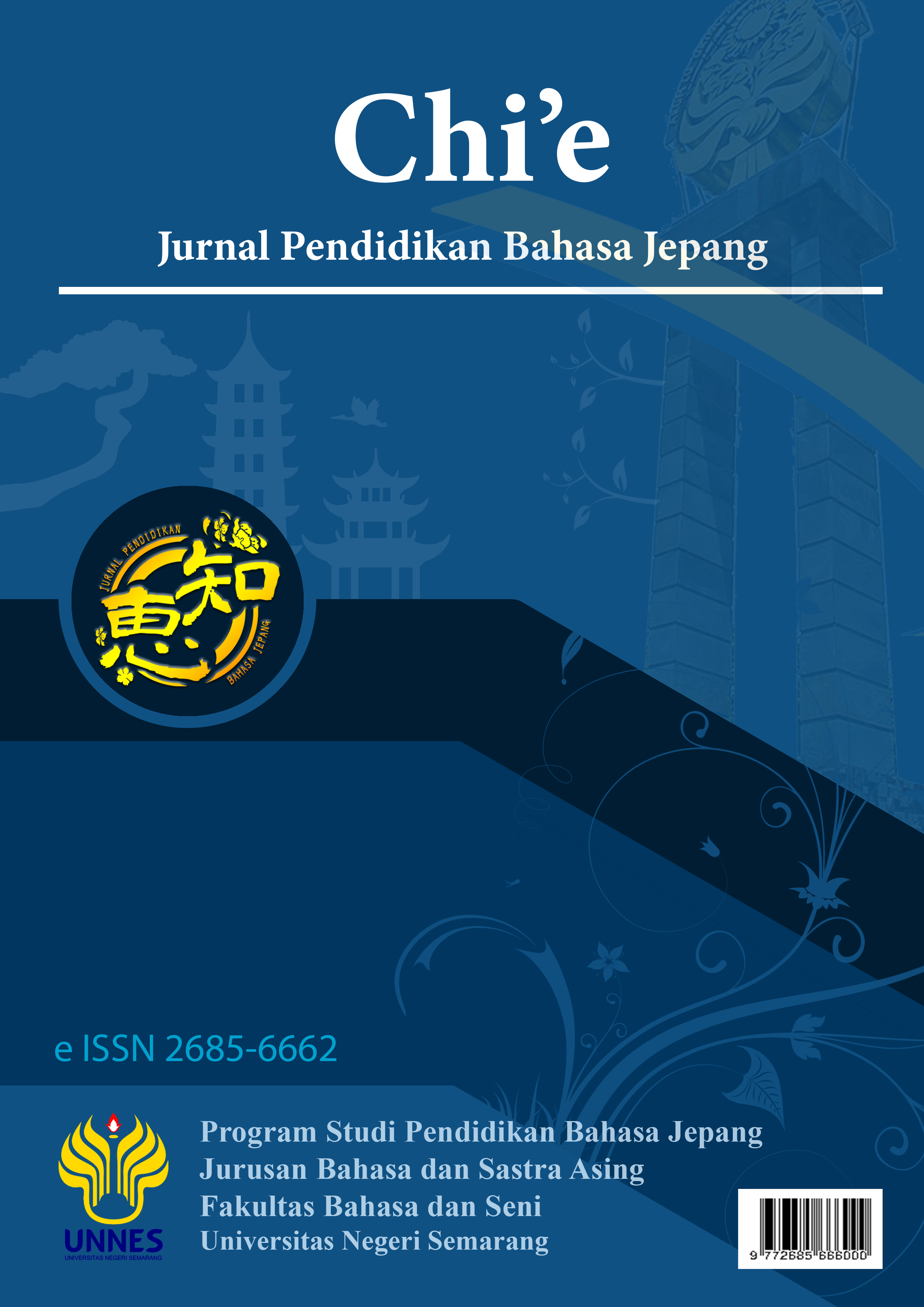Komparatif Makna Idiom ‘Ki’ dengan Idiom dalam Bahasa Indonesia ‘Hati’ Ditinjau dari Makna Leksikal – Kajian Linguistik Kognitif-
Abstract
This study trying to describe the relationship between lexical meaning and the idiomatical meaning of ‘ki’ in the Japanese language idioms and ‘hati’in Indonesian language Idiom by using perspective of cognitive linguistic. This study classified as a basic research category, because this research was conducted to find new theories about how idioms get to motivated from the relationship between lexical meaning and idiomatic meaning in the cognitive linguistics point of view, finds differences and similarities between Japanese and Indonesian idioms. Then contrasted the idioms using the matching techniques of linguistics. From the analysis result, it can be seen that there are idioms from both languages that have different lexical meanings, but have similar idiomatic meanings. That happens because there are similarities between the point of view in looking at the ki and hati, even though there are cultural differences. It was also found that between ki idioms and hati, ki idioms have a more variants, in one category of idioms which has the same idiomatic meaning than hati idioms. Then from both ki idioms and hati idioms, some idioms show an extension of idiomatic meanings that are more broader than the basic idiomatic meanings, where it shows the emergence of polysemic meanings of some ki idioms and hati idioms.















